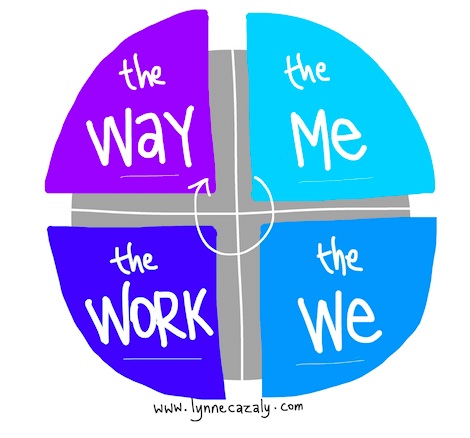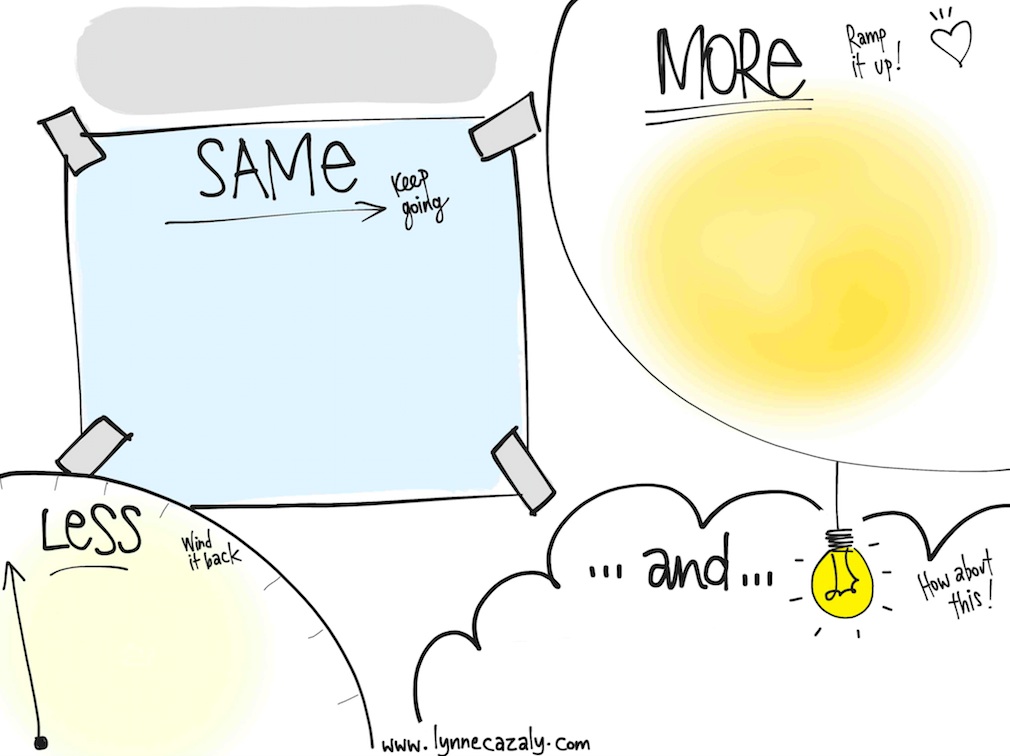The Leader as Coach approach has been a leadership staple in many industries and organisations for years.
This is where a leader schedules one-on-one conversations and meetings with their team members. These conversations may be about helping that team member progress and develop, help them uncover ideas and actions to tackle challenges or barriers getting in that person's way or to perhaps have a tricky or difficult conversation about behaviour or performance.
'Train the Coach', 'Coach the Coach' or 'Leader as Coach' programs have been a popular part of the learning and development offer for years.
I recall delivering a coaching training program for leaders for a large banking and financial institution about ten+ years ago. They wanted to ensure their leaders adopted a coaching culture and in turn, help them be more effective at those crucial one-on-one conversations.
So, yes, coaching is a highly valued and valid leadership tool.
But there's a but: it can be so. freakin'. s-l-o-w.
Many leaders find the drain, drag and pace of one-to-ones across their team less efficient than they'd like ... and less efficient for the time they have available.
As one leader in the bank's coaching program I ran said (in objection to doing coaching):
"It takes so long to get that person to realise what needs to be done, to go through the GROW model or whatever tool we're working on. I just don't think I have the time or the patience for this all the time".
While that type of comment may run counter to what leadership or leaders should be like (read: more patient or more effective at coaching or more 'something'), the realities of pressured schedules, busy teams and project deadlines mean many leaders avoid the one-on-one or push it out and delay it or try and reschedule it time and again.
As a result, communication, leadership, colalboration, performance and engagement all suffer.
Rather than telling leaders to coach more or insisting they must coach more, I believe we need to acknowledge that leaders have time to leverage and the better they can do that, the greater impact they'll have - certainly more than what a raft of one-to-ones can achieve.
To all the coaches or pro-coaches out there... relax, this is not to say one-on-one coaching conversations aren't needed; they are. For things like performance and development and tricky situations, sure; book a room, one-on-one and go coach. They will always be needed.
But for some organisations who adopt and prioritise coaching, it can seem as if every conversation a leader has to have with their team members has the danger of turning into a book-a-meeting-room-for-a-one-on-one kind of meeting.
When a business decrees that coaching or one-on-one conversations are the priority to lift performance or address issues, it can begin to chew up a lot of time in the diary.
As a leader in a tech organisation said to me recently,
"I've got a team of 12. When you add in the time of having heaps of one-on-ones with them, along with the team and group meetings, and the other responsibilities I have influencing and managing stuff, it all gets too much. I find myself thinking how else could I be leveraging this time".
Not more meetings
Please don't assume we're talking about running more meetings here. Meetings are already under pressure for wasting time, running off topic and being dominated by the loudest voices.
But what I do think can be done is having more group conversations and sessions - small or larger groups.
These small or larger group sessions can be focused on the same sort of development, barriers, progress... whatever other topics need to be managed for that team - but done in a group setting rather than always believing it needs to be done via a bunch of one-on-ones.
This is where the leader as coach, shifts into a leader as facilitator.
For some leaders there is a fear there; 'I don't want to be running a group session' or'Then the whole thing will get out of control; I'll never reign them in!' or 'How do I shut them up?' or 'I don't want things going off-track or getting to negative or turning into a whinge-fest'.
Still other leaders are nervous in front of a group or worry about the questions they'll be asked or if they'd ever be bombarded or ambushed by a team of clique of people.
But these are simply some of the fears of facilitation, the fears of working with and leading a group... and these fears can be allayed when you know what to do with a group or team in a group setting.
Leverage for impact
Indeed it's time for leaders to better leverage their time as well as the time of their team members. Rather than going s-l-o-w with lots of one-on-ones, leaders need to bring those individuals together to have more effective and impactful group sessions: both small group: twos, threes or fours... and larger groups seven, 10, 12, 25, 40 people.
Time gets leveraged for all. Rather that 12 x 1 hour meetings, get everyone (or groups of everyone!) in the room and have a 15, 30 or 45 minute engaging session and conversation - well-facilitated by the leader.
Lift the game
Lazy leaders limp into meetings, slump into chairs and bark commands or tap their pens on the table. It's old school, last century and not facilitative. At all. Lazy leaders interrupt, bluff and bluster their way through BS jargon and wonder whey they have a disengaged and disempowered team.
The leader as facilitator is a different way of behaving and leading. It requires a lift in your thinking and capability.
The shift from 'Leader as Coach' to 'Leader as Facilitator' is underway and I see it as one of the most exciting shifts in leadership today.
When a leader facilitates, group harmony and cohesion is strengthened and the sheer energy or vibe of the team, tribe or group coming together lift people to higher levels of performance.
Facilitators make progress easy... or easier. They run a process, respond to what happens and draw on very cool tools to make progress.
As a participant in my Leader as Facilitator program said:
"Now I'm able to get stuff done; we talk as a team, I can help remove barriers across the team, we can make decisions as a team and I'm better able to handle the general sh*t that goes down daily in our team."
(Note, this leader wasn't naming his people as sh*t; it was more about the finicky, challenging issues and hiccups that happen throughout a typical day when leading a diverse team).
There are authentic, empathic and realistic ways to get stuff done in teams and keep the team connected to the work to be done, all via the power of facilitation. This is about being more of a Leader as Facilitator.
 Sunday, August 11, 2019 at 9:43PM
Sunday, August 11, 2019 at 9:43PM 



















